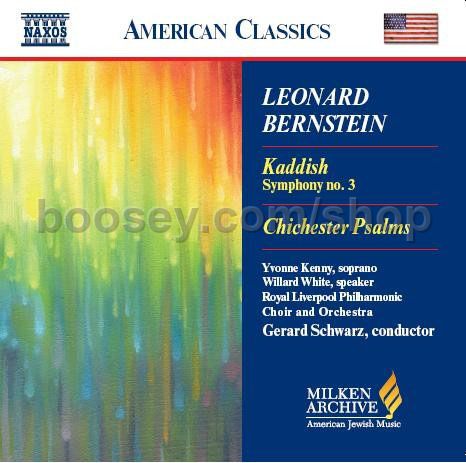2/21/11 – Bernstein: Symphony #3 “Kaddish”
Music can name the unnameable and communicate the unknowable.
- Leonard Bernstein
Leonard Bernstein has been near the top of my list of favorite composers since I first heard West Side Story. His particular brand of neoclassicism places him in line as a musical descendant of Stravinsky – perhaps the highest composer on that list. His sense of Jewish spirituality likewise feels similar to that of Stravinsky’s love of the Orthodox church. The “Kaddish” is Bernstein’s answer to the Requiem Mass – a Hebrew prayer for the souls of the dead, and Bernstein’s setting interpolates an English language narration with texts taken from the Hebrew liturgy. The result is a work somewhere in between his Mass and Chichester Psalms; a work of beauty and divine inspiration with a certain amount of commentary and liberty taken with the theology and structure of the liturgy around which it was based. Ironically enough, this “Jewish Requiem” of sorts never mentions the word death anywhere within its text.
The character of the Symphony is often one of both lament and anger at God; a sentiment much more comfortable in the Jewish faith than in most Christian relationships with God. The text also spans three languages; the English of the narration, Hebrew congregational responses in the liturgy, and additional prayers sung in Aramaic. Structurally, it does not feel like a symphony, as there is too much emphasis on the text and choral aspects as opposed to the strictly musical elements.
Bernstein’s harmonic language is often polytonal, but in my opinion, lacks the refinement of his great Chichester Psalms. Occasionally, he reaches out into 12-tone writing, but the result is more accessible than Schoernberg’s atonality; a balance that I would academically wish to investigate further if I had the resources to do so – namely the time, patience, and access to a manuscript of the score. The lyrical passages of the second movement in particular soar beautifully, but the fast, rhythmic, percussive qualities idiomatic to Bernstein’s writing are more subdued here, no doubt due to the more somber nature of the text. Granted, this is completely understandable, but I miss them nonetheless.
While I enjoy listening to this moving piece of music, I find less value in it than in many of Bernstein’s other works. Perhaps it is because I’m less familiar with it than others, such as the Chichester Psalms in particular, but the restrained energy of the piece seems often to lead to a lack of passion. I realize that a prayer service for the dead necessitates a certain amount of somberness, but even as such, it lacks the sweeping beauty of many of the great Requiems that have gone before; Faure, Brahms, and Verdi being the first to come to mind. Perhaps upon further listening, I would develop a greater appreciation for the work, but alas, examining one album a day for a year does indeed have it’s drawbacks in addition to its merits…
Tomorrow – Exile on Main Street (The Rolling Stones)
Next week – Tchaikovsky: The Nutcracker

No comments:
Post a Comment